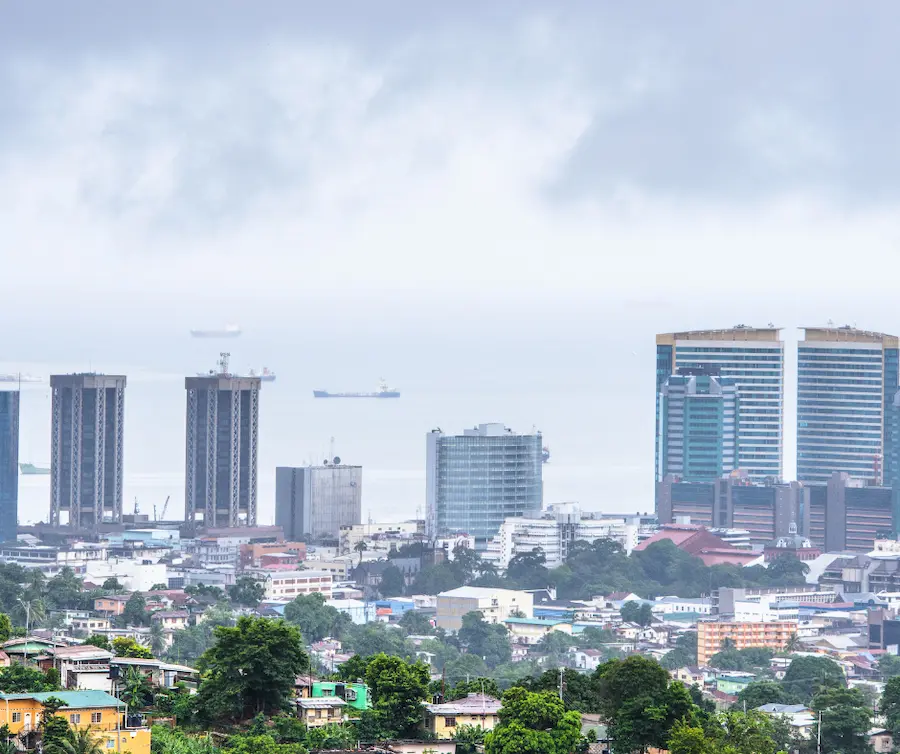
State of emergency declared in TT

BLOGGER and social activist Vishal Persad is challenging portions of the Emergency Powers Regulations, 2024, enacted during the state of emergency (SoE) declared on December 30.
Persad, represented by attorneys Keron Ramkhalwhan and Kiel Taklalsingh, contends that provisions allowing restrictions on public order disproportionately limit fundamental rights protected under the Constitution.
Ramkhalwhan sent a pre-action letter to President Christine Kangaloo and acting Attorney General Stuart Young on January 1.
The regulations, issued under Proclamation No 20 of 2024, grant extensive powers to law enforcement, including detentions, restrictions on movement and limitations on speech deemed prejudicial to public order.
Persad’s challenge specifically targets Regulations 12, 14, and Section 2 of the schedule. It argues that the undefined term "public order" is excessively broad and could criminalise trivial acts, including political criticism, which undermines free expression and other constitutional protections.
>
“This proposed claim seeks only to challenge the constitutionality of Regulation 12, 14 and Regulation 2 of the Schedule (regulations dealing with public order).
“The intended applicant is of the respectful view that while robust measures may be required to treat with a public emergency, such powers should be proportionate, necessary and limited to powers which are required...
“We repeat, the intended applicant is not challenging the need for a state of emergency or the remaining regulations that have been promulgated.”
Ramkhalwhan contends the powers are excessive, not required to treat the purported public emergency and also inconsistent with the Constitution.
“Such inconsistency is not reasonably justifiable for the purpose of dealing with the public emergency that is said to exist at this time.
“The intended applicant will be seeking an order in the constitutional claim to sever the term ‘public order’ from the regulations,” the letter said.
Ramkhalwhan said they accepted public emergencies were extraordinary situations that require extraordinary measures.
“What is of importance is that the right balance is struck between the rights of...individuals and the interest of the community.”
Persad’s attorneys submitted that including "public order" in the regulations went too far because it was likely to capture "trivial acts that could not reasonably be regarded as prejudicial to public safety," and could be used as a "broad sword" to cut down citizens’ rights to severely criticise the Government and/or the Executive through freedom of speech.
>
“The core problem – violent crime fuelled by gang activity and armed confrontations – requires focused, targeted measures, rather than the broad criminalisation of minor public order breaches."
Giving the executive an unchecked ability to target and detain people for trivial acts or expressing their political beliefs "may fall within an arbitrary definition of maintaining public order, which is particularly dangerous in an election year where criticisms against the government and/or the executive are expected to be virulent and scathing.”
The letter referred to the cases of Earl Elie and Ashmeed Mohammed against the Attorney General, which dealt with “similar if not identical provisions in the Emergency Powers Regulations, 2011, during that year's SoE .
“The Court of Appeal in determining whether similar provisions of the Emergency Regulations 2011 were unconstitutional strongly criticised the use of the term ‘public order’ in the emergency regulations issued by the then President,” the letter pointed out.
In those cases, the Appeal Court had considered severing the term from the regulations, but by the time the matter was determined – in January 2024 – the regulations were no longer in effect.
The pre-action protocol letter called on President Christine Kangaloo to amend the regulations by January 6, failing which constitutional proceedings will be initiated to seek judicial intervention.
The SoE was declared to deal with a threat of imminent gang-related reprisal attacks involving high-calibre weapons and a resulting threat to public safety.
The National Security Council made the decision around midnight on December 29, after two incidents involving a murder outside the Besson Street Police Station, Port of Spain, on December 28, and the apparent reprisal killings of five people at Prizgar Lands, Laventille, on December 29.
On December 30, acting Attorney General Stuart Young said the SoE had been declared as the Government acted on information based on intelligence that the police had provided to the National Security Council.
>


